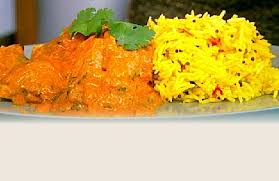
For their next Christmas show a
choir I belong to is doing an intriguing song called
Hope for Resolution. This involves the weaving together of an English hymn,
Of the Father's love begotten and a Zulu song,
Thula sizwe (‘Be still, my country’).
Many years ago I attended an elementary course of Zulu at SOAS, which included a detailed account of the phonetics. Zulu is a wonderful language for exemplifying speech sounds with different airstream mechanisms, since its sound system includes not only ejectives and implosives, but also clicks — plain, aspirated, voiced, nasalized, and breathy-nasalized. And there are alveolar lateral fricatives and affricates and even a velar lateral affricate ejective.
The words of the song, repeated several times in different combinations, are
Thula sizwe, ungabokhala,
uJehova wakho uzokunqobela.
Inkululeko, sizoyithola.
which means (as far as I can tell)
Be still, country, do not cry,
Jehovah will conquer for you.
Freedom, we will find/get it.
and is authentically pronounced (I think)
ˈtʰuːla ˈsiːzwɛ uŋɡaɓɔˈkʰaːla
udʒɛˈhɔːva waːkʰɔ uzɔɠuˈŋǃɔɓɛːla
iŋkʼuluˈlɛːɠɔ sizɔjiˈtʰɔːla(
ɓ, ɠ = voiced implosives, i.e. with ingressive glottalic airstream;
kʼ = ejective, i.e. with egressive glottalic airstream;
ŋǃ = voiced nasalized alveolar (retroflex) click, i.e. with an egressive pulmonic airstream for the
ŋ component and a velaric ingressive airstream for the click component)
I haven’t been able to check this with a native speaker, so if anyone knows better please do not hesitate to tell me.
Zulu has high, low, and falling tones, but with the exception of
thúla, -khâla and
-thóla I do not know what the tones in these words are.
Zulu morphology is highly agglutinative. For example, the word
uzokunqobela (‘he will conquer for you’), is made up of u- (subject concord), -zo- (future tense marker), -ku- (object concord), -nqob- (verb root, ‘conquer’), -el- (“applied” suffix, do something on behalf of someone else), -a (ending).
Certain Zulu voiced consonants, known as depressor consonants, have a lowering effect on the tone of the following vowel. Among them are the pulmonic-air voiced obstruents, but not the voiced implosives. This is relevant to the perception of the phonemic contrast between plain voiced plosives and implosives. The implosives are only very mildly implosive and the main auditory difference between them and the plain voiced plosives is that plain [b] and [ɡ] are depressors, while weak-implosive [ɓ] and [ɠ] are not. In singing, though, such tonal subtleties are naturally lost.
Our choirmaster has taught us to sing
tula sizwe uŋgabokala
ujehova wako uzokuŋkobela
iŋkululeko sizojitola
which seems close enough.
But I don’t think I shall be able to resist defiantly pronouncing the nasalized click in its proper place in
uzokunqobela.
 Here’s a nice little video from YouTube. It’s an advertisement for CNN, in which Christine Amanpour purports to attempt to teach the approved pronunciation of Iraq(i) and Iran to a would-be presenter who wants to say them with /aɪ-/.
Here’s a nice little video from YouTube. It’s an advertisement for CNN, in which Christine Amanpour purports to attempt to teach the approved pronunciation of Iraq(i) and Iran to a would-be presenter who wants to say them with /aɪ-/.






















